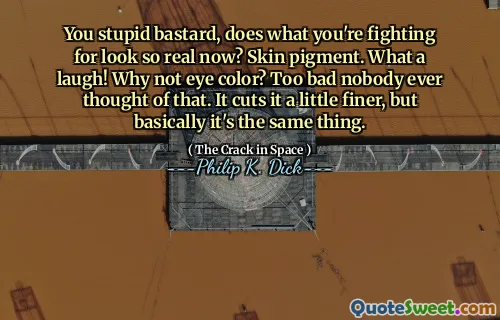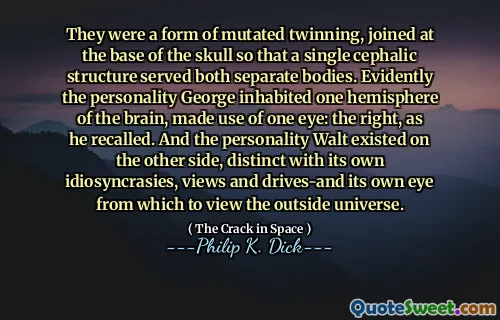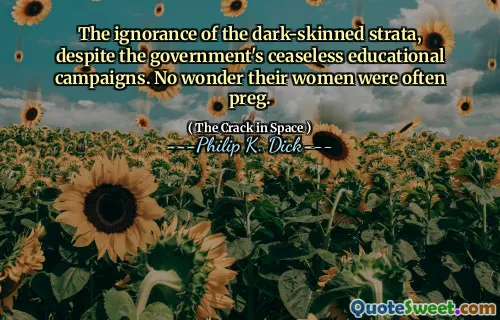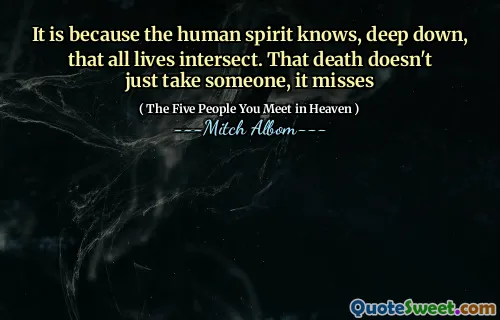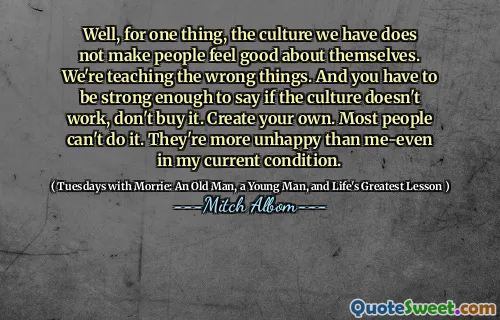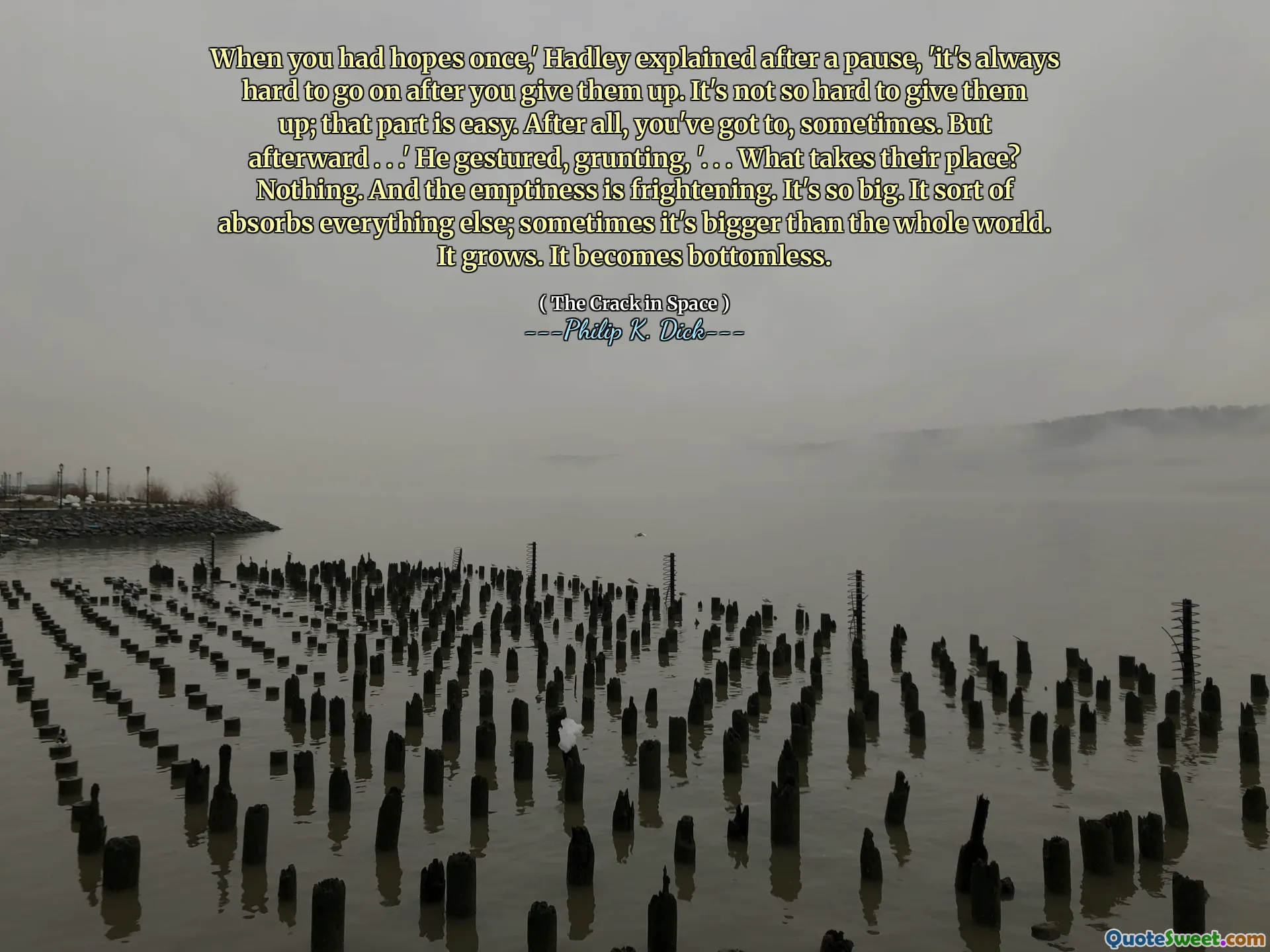
当您有一次希望时,Hadley在停顿后解释说:“在您放弃后,总是很难继续下去。放弃他们并不难。那部分很容易。毕竟,有时您必须这样做。但是之后。 。 。'他示意,咕unt着。 。 。是什么取代?没有什么。空虚令人恐惧。太大了。它吸收了其他所有东西。有时它比整个世界都要大。它成长。它变得无底。
(When you had hopes once,' Hadley explained after a pause, 'it's always hard to go on after you give them up. It's not so hard to give them up; that part is easy. After all, you've got to, sometimes. But afterward . . .' He gestured, grunting, '. . . What takes their place? Nothing. And the emptiness is frightening. It's so big. It sort of absorbs everything else; sometimes it's bigger than the whole world. It grows. It becomes bottomless.)
哈德利(Hadley)反思放弃希望的痛苦经历,并指出虽然很容易放手,但后果却更具挑战性。留下的空隙不仅是空的。这是一个恐怖的广阔,消耗了周围的一切,使一个人感到迷失和迷失方向。空虚的感觉比生命本身更大,变成了令人难以理解的压倒性的存在。
哈德利(Hadley)的这种凄美的认识说明了当梦想和愿望消失时所面临的深刻情感斗争。缺乏希望,而不是带来慰藉,而是导致了深刻的失落感,因为人们努力应对填补留下的鸿沟。无限空虚的令人困扰的概念提醒人们希望人类的积极希望,而其缺席的令人不安的现实会使一个人在一个巨大的,毫无意义的空间中陷入困境。
